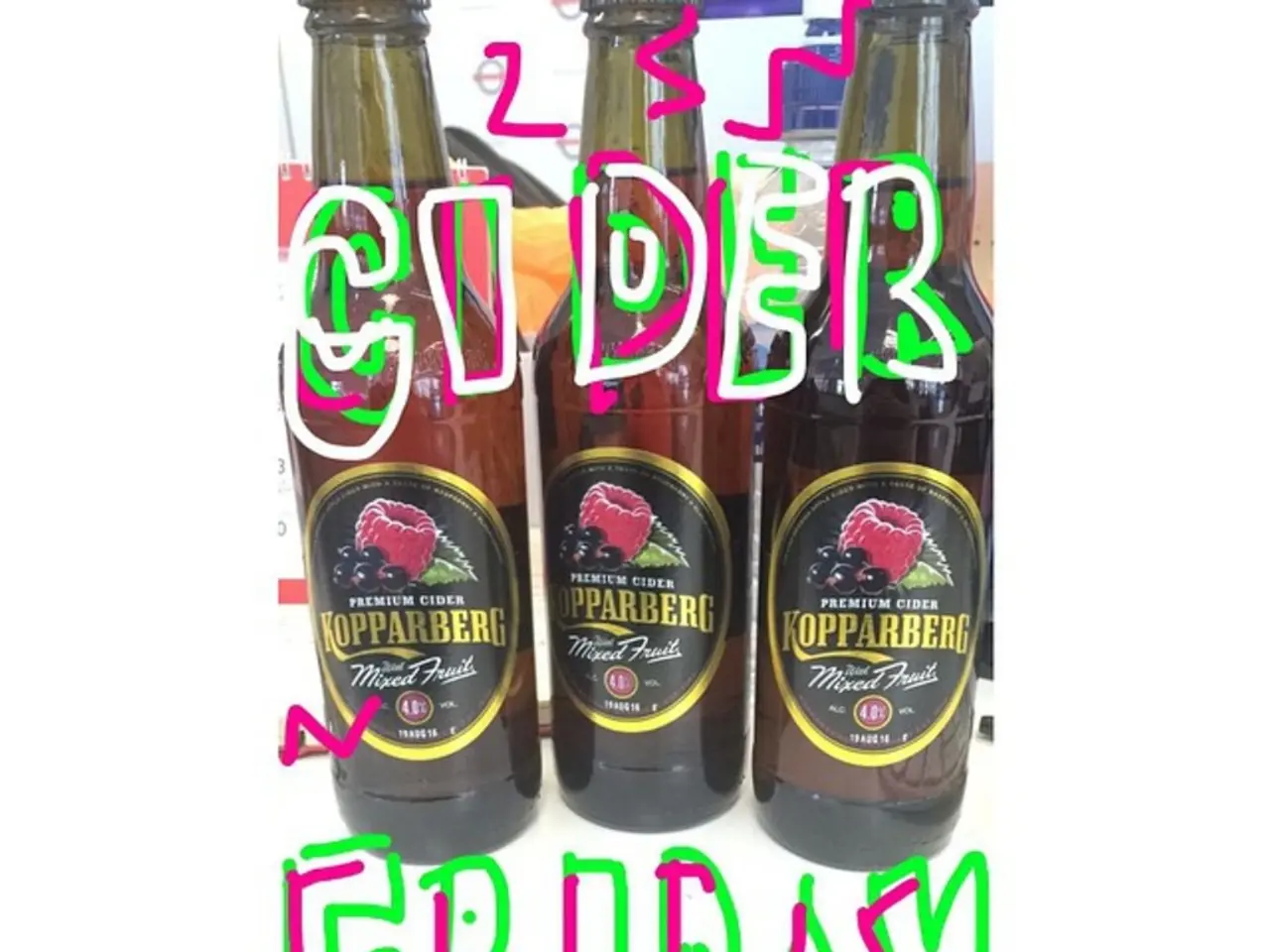Surprising collective causes U.S. alcohol consumption to reach a near-record low after 90 years.
In a notable shift, the rate of alcohol consumption among Republicans in the United States has seen a significant drop, with a decline of 19 percentage points from 65% in 2023 to 46% in 2025 [1][3][4][5]. This dramatic decrease stands in contrast to the relatively stable consumption rate among Democrats, which hovered around 60-61% during the same period.
This decline among Republicans is linked to cultural and social changes within the party. Prominent figures like Donald Trump, RFK Jr., Tucker Carlson, and Charlie Kirk, who have publicly promoted sobriety, have played a role in this trend [2][4]. Additionally, there is a growing belief among Americans that even moderate drinking is unhealthy, a sentiment that has influenced this trend across the population but has been particularly pronounced among Republicans [1][5].
The implications for the alcohol industry are substantial. Republicans have historically been a significant consumer segment, and their reduced consumption contributes to the overall lowest national drinking rate in nearly 90 years (54% in 2025 versus 62% in 2023) [1][5]. This shift presents challenges for the industry, including the need to adapt marketing strategies and product offerings to a changing demographic with more skepticism toward alcohol’s health benefits.
Although Democrats’ consumption rates have seen only a modest decline, the overall market contraction driven by Republican abstinence could lead to longer-term shifts in demand, potentially impacting sales, product innovation, and sector growth [1][3][4].
The broader cultural shift linked to Republican sobriety also reflects a decline in social activities involving alcohol, such as parties and outings. This trend could exacerbate a wider reduction in alcohol-centered socialization, factors relevant to consumer behavior and hospitality sectors connected to alcohol sales [2].
The impact on the alcohol industry is evident in several high-profile closures of American whiskey distilleries [6]. For instance, Campari-owned Wild Turkey saw an 8 percent decline in US sales during the first half of 2025, and Jack Daniel's parent company Brown-Forman announced layoffs affecting 12 percent of its workforce in January [7]. Moreover, a major barrel-making facility in Louisville was closed by Brown-Forman, and Jack Daniel's dropped 6 percent year-over-year [6].
The departure of a wholesale giant from the largest wine market in the US is a warning sign for an industry already struggling [8]. Whether this trend will persist and how it will reshape the alcohol industry depend on ongoing cultural, political, and health narratives around drinking in the U.S.
- The decline in alcohol consumption among Republicans, coupled with a growing belief that even moderate drinking is unhealthy, has resulted in a significant shift in the health-and-wellness sector.
- The drop in alcohol consumption and its associated social activities might have a ripple effect on the fitness-and-exercise industry, as fewer alcohol-fueled events could lead to increased participation in physical activities.
- The mental-health community may also be impacted, as changes in drinking habits could lead to alterations in patterns of substance abuse and mental health issues.
- The rise in overall concerns about the health implications of alcohol consumption is a topic of interest in the science community, as researchers may study the long-term effects of this cultural shift on public health.
- The political implications of this trend in alcohol consumption extend beyond the alcohol industry, as the viewpoint of the Republican party might influence policy-making related to general-news topics such as taxation and regulation of the alcohol industry.




